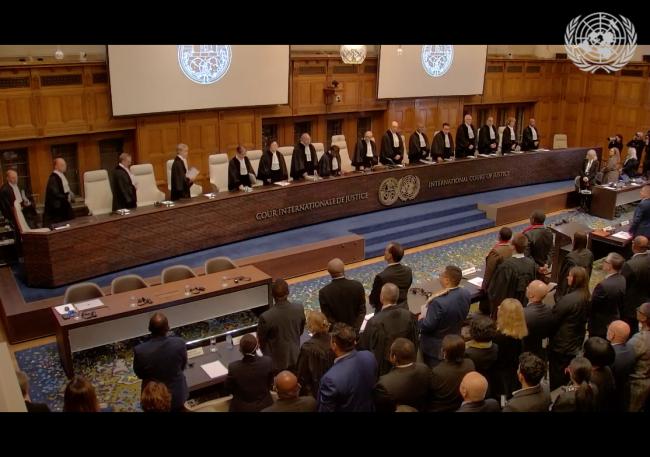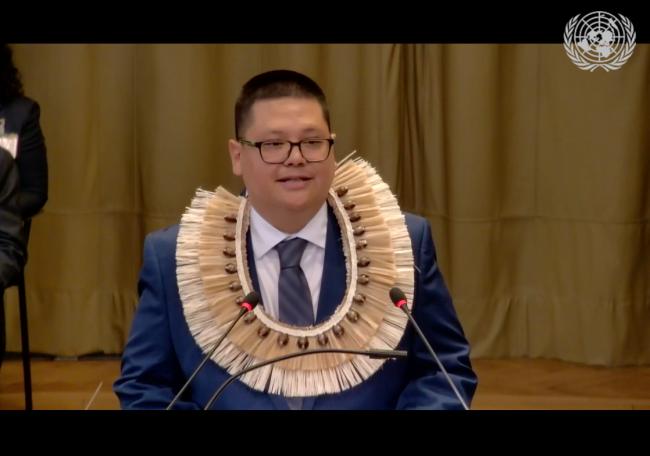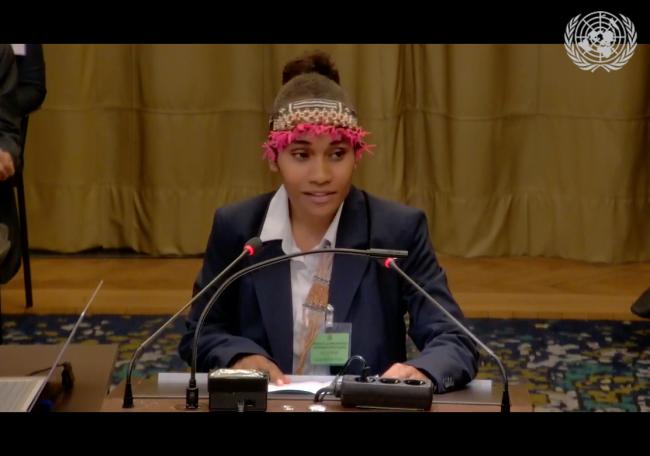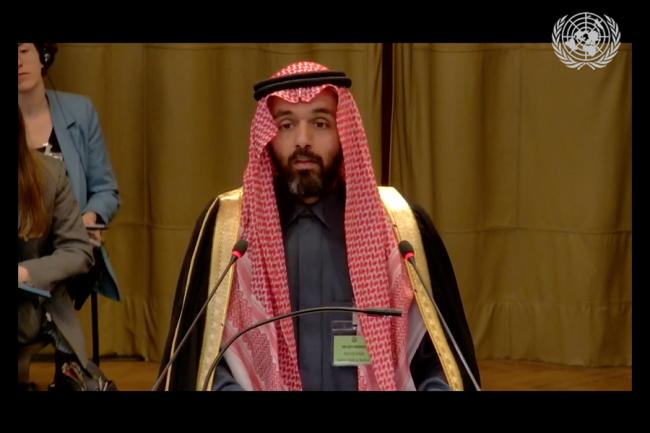The hearings opened on a somber note: Vanuatu—the small island State which successfully lobbied the UN General Assembly to request the Court’s advisory opinion—delivered a strong message, together with the Melanesian Spearhead Group. They highlighted that large emitting States are still expanding their production and consumption of fossil fuels, with fossil fuel subsidies reaching an all-time high of USD 7 trillion in 2022. This, they underscored, clearly shows that these States are merely paying lip service to their climate commitments.
Want to dig deeper into today's hearing? Read the full Earth Negotiations Bulletin daily report.
Particularly vulnerable countries were unanimous in denouncing the lack of decisive mitigation action and the devastating consequences thereof on their people. Barbados reminded the Court that climate change is “not a speculative matter, it is a matter of life and death for small island developing States” who have nowhere to go to escape sea-level rise. The Bahamas asked who would take their people when their islands are wiped out, and Bangladesh urged the judges to “guide the world away from the precipice.” In legal terms, they stressed that all countries have a duty under customary international law to prevent significant transboundary harm to the environment of other countries, that this duty includes harm from climate change, and that large greenhouse gas emitters have breached this duty.
Others charted a different argumentative path. Saudi Arabia noted that States are obliged to formulate nationally determined contributions (NDCs) under the Paris Agreement on climate change, but stressed that the content and implementation of NDCs are not legally binding and that there is “no basis whatsoever” to establish a limit on fossil fuel extraction and production. Australia argued that greenhouse gas emissions lack the direct causation and proximate temporal effects typical of conventional transboundary harm. In relation to the rights of future generations, Germany expressed the view that the goal of human rights treaties is to protect “actual victims of concrete violations, not abstract persons from abstract risks.”
With ten statements down, observers are keen to see what direction the more than ninety remaining statements will take. One thing is clear: many are frustrated with the outcomes of the Baku Climate Change Conference and have high hopes for the Court to inform future climate action.
To receive free coverage of global environmental events delivered to your inbox, subscribe to the ENB Update newsletter.






























